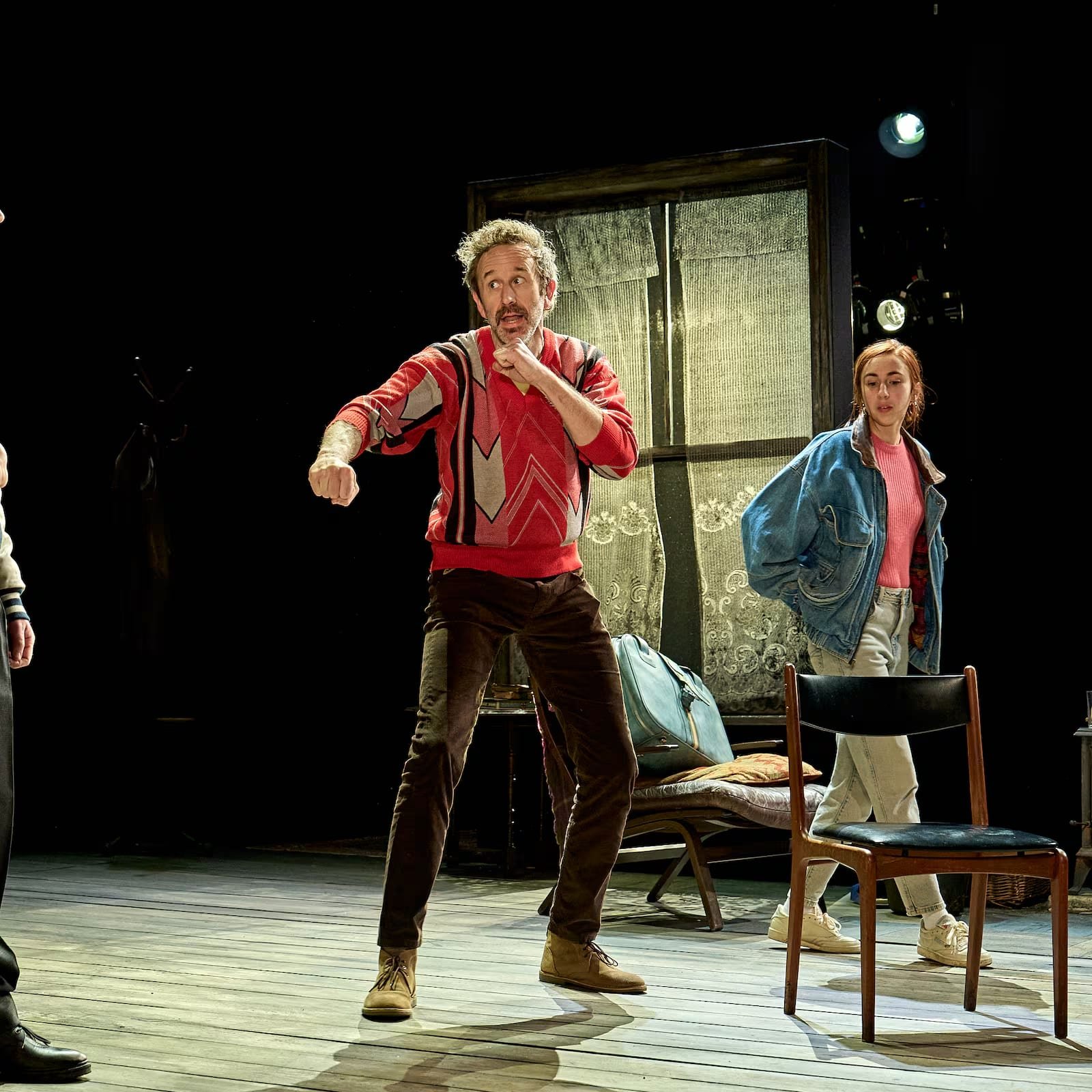The House We Inherit, Quid Pro Quo Theatre Review
Written by Charlotte for Theatre and Tonic.
Disclaimer: Tickets were gifted in return for an honest review. All views are my own.
Sarah Majland’s The House We Inherit makes an earnest attempt at presenting itself as a hard-hitting contemporary parlor drama, but sadly fumbles over its troublesome tropes and weak direction. The play takes place in the living room of a family home somewhere in New England (as marked by the Patriots jersey, American flag, and strained attempts at a vaguely Massachusetts-type accent). Timmy, a twenty-something dying of a congenital heart defect, has inherited the house from his late parents, and finds himself surrounded by his adopted brother Kevin, a fisherman with a propensity for picking fights, and estranged sister Helena, a New York artist with a distant girlfriend, as he approaches his final months.
The play features Majland herself in the role of Helena alongside Boyan Petrov as Timmy and Öncel Camci as Kevin. The company are also the joint directors of the piece, which proves to be one of its pitfalls. The staging is dynamic enough for a living room setting, but the individual performances swing between over-acted and forced in a way that makes it difficult to feel invested in the reality of the drama.
The looming secret on which the plot hinges is clockable from a mile away, which wouldn’t in itself be damning if it weren’t for the uncomfortable stereotype at its core. To Majland’s credit, the tense exchanges leading up to the ultimate reveal are well-composed and have every potential to grip an audience with a bit more clarity of direction, but the merits of that tight writing are largely washed away by the reliance on a tired and unnecessary construct of lesbian identity.
If there is a true star of The House We Inherit, it may well be the house itself, or rather its design. The set dressing is expertly tailored to the Bridge House’s intimate black box, with water-stained wall paper straight out of the seventies, an ancient coach coated in old throw blankets, and the hauntingly effective focal point – a gallery of family portraits watching over the drama like specters. The lighting design by Conor Costelloe is elegantly effective, if occasionally more expressive than needed. It is the sound design, though, that is stands out as truly masterful. Designed and composed by Camci and Majland, the pre-show soundscape builds a disquieting atmosphere, melding a solemn, echoing underscore with sterile medical speech and bits of conversation that the walls of this house have heard and absorbed. Every moment of the play that follows is brilliantly infused with those preceding voices, echoed by the sounds that once filled the ticking time-bomb of a living room Timmy, Kevin, and Helena are now seemingly trapped inside.
Despite the use of a rather disagreeable plot point, Majland does present herself as a writer with real potential in The House We Inherit. Her dialogue is sharp and agile, capable of pushing a drama with riveting pace with a little tightening of overarching narrative structure. The production’s pitfalls are almost certainly attributable to the immense difficulty of successfully being writer, director, designer, and actor on a single piece. Indeed, it feels like The House We Inherit could easily have avoided many of its failures with just a few more sets of eyes. Naturally, fringe theatre relies on this kind of technical multi-rolling; and that this company is capable of wearing so many hats at all is certainly an impressive feat. Still, if The House We Inherit has a future life, it could very well do with adding some more creative perspectives to its team.
☆ ☆ ☆










